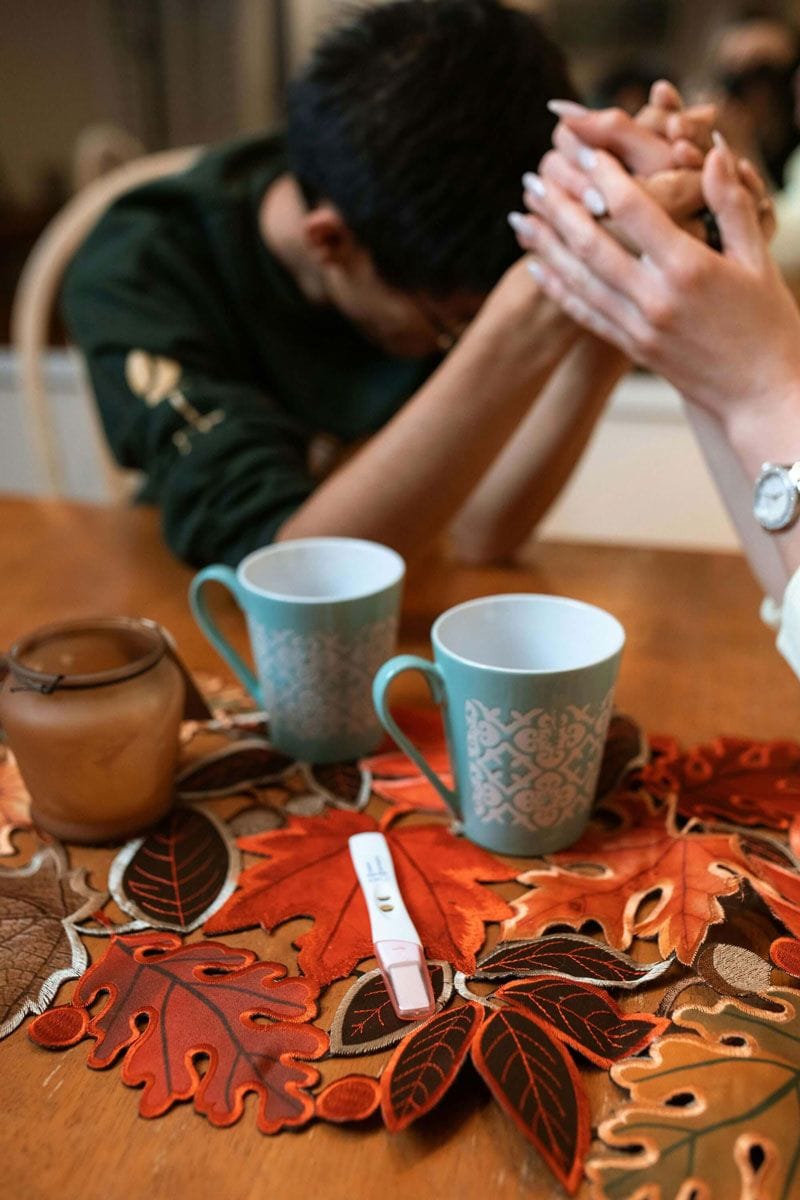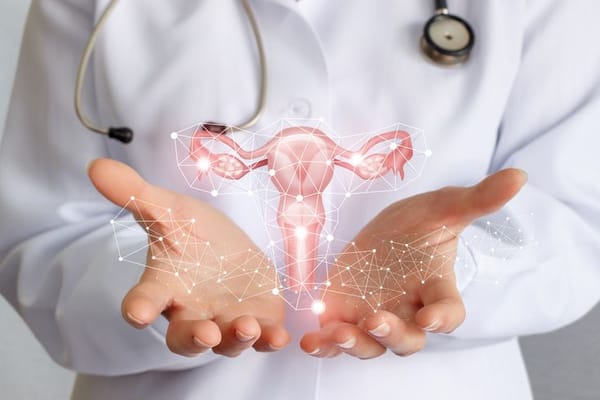Intrauterine Insemination (IUI) is a popular fertility treatment for couples experiencing difficulties conceiving naturally. It's a less invasive and more affordable option compared to In Vitro Fertilization (IVF), and it involves placing sperm directly into a woman's uterus around the time of ovulation. For many, the two-week wait (2WW) following IUI can be a time of intense anticipation and anxiety. Understanding what symptoms to expect day by day can help ease this period. Here’s a detailed breakdown of potential IUI success symptoms from the day of the procedure up to the day you can take a pregnancy test.
Common Symptoms After Procedure
Day of IUI (Day 0)
Procedure Day:
- Mild Cramping: Some women may experience mild cramping similar to menstrual cramps due to the insertion of the catheter.
- Light Spotting: Minimal spotting can occur due to the procedure, which is typically harmless.
Days 1-2 Post-IUI
Immediate Aftermath:
- Mild Discomfort: Mild cramping or bloating may continue as your body adjusts.
- Slight Spotting: Any spotting from the procedure should be resolved.
Days 3-5 Post-IUI
Early Signs:
- Fatigue: Hormonal changes might start causing fatigue.
- Mild Cramps: Ovarian stimulation can lead to mild cramping or bloating.
Days 6-8 Post-IUI
Implantation Window:
- Implantation Bleeding: Some women might notice light spotting (implantation bleeding) as the embryo attaches to the uterine lining.
- Cramps: Mild cramps might continue, signifying implantation.
- Mood Swings: Hormonal fluctuations can cause mood changes.
Days 9-10 Post-IUI
Early Pregnancy Symptoms:
- Breast Tenderness: Hormonal changes can make breasts feel sore or tender.
- Nausea: Some women may begin to feel slight nausea or sickness.
- Increased Fatigue: Your body might be working hard to support early pregnancy.
Days 11-14 Post-IUI
Approaching Test Day:
- Heightened Symptoms: Symptoms like nausea, breast tenderness, and fatigue might intensify.
- Frequent Urination: Hormonal changes can increase the need to urinate.
- Heightened Sense of Smell: Some women report a heightened sense of smell.
Day of IUI to Day 7 Post-IUI
Immediate and Early Signs:
- Mild Cramping and Spotting: Mild cramping and spotting are common immediately after the procedure and don’t necessarily indicate failure. These symptoms often result from the procedure itself.
- No Symptoms: Some women may not experience any noticeable symptoms in the first week post-IUI. The absence of symptoms can be common and doesn’t indicate the success or failure of the procedure.
Days 8-14 Post-IUI
Approaching the Two-Week Wait End:
- Menstrual-like Cramps: Cramps similar to those experienced before menstruation can occur. While they might be a sign of implantation in successful cycles, they can also indicate that menstruation is approaching.
- Spotting or Light Bleeding: Spotting can occur in successful and unsuccessful cycles. However, if the spotting turns into heavier bleeding similar to a menstrual period, it may indicate the onset of menstruation.
- No Pregnancy Symptoms: The absence of common early pregnancy symptoms (nausea, breast tenderness, fatigue) doesn’t necessarily mean the cycle was unsuccessful, but if these symptoms are absent, it might be an indication.
Post-Two-Week Wait
Symptoms Leading to Menstruation:
- Menstrual Bleeding: The most definitive sign of an unsuccessful IUI cycle is the onset of a full menstrual period. This typically happens around 14 days post-IUI if the cycle was not successful.
- Severe Cramping: Some women may experience severe menstrual cramps as their period begins.
Symptoms of an Unsuccessful IUI Cycle
Intrauterine Insemination (IUI) can be a hopeful step for couples trying to conceive, but it's important to be prepared for all possible outcomes. Understanding the symptoms of an unsuccessful IUI cycle can help manage expectations and prepare for the next steps. Here’s a comprehensive guide to recognizing these symptoms.
Day of IUI to Day 7 Post-IUI
Immediate and Early Signs:
- Mild Cramping and Spotting: Mild cramping and spotting are common immediately after the procedure and don’t necessarily indicate failure. These symptoms often result from the procedure itself.
- No Symptoms: Some women may not experience any noticeable symptoms in the first week post-IUI. The absence of symptoms can be common and doesn’t indicate the success or failure of the procedure.
Days 8-14 Post-IUI
Approaching the Two-Week Wait End:
- Menstrual-like Cramps: Cramps similar to those experienced before menstruation can occur. While they might be a sign of implantation in successful cycles, they can also indicate that menstruation is approaching.
- Spotting or Light Bleeding: Spotting can occur in successful and unsuccessful cycles. However, if the spotting turns into heavier bleeding similar to a menstrual period, it may indicate the onset of menstruation.
- No Pregnancy Symptoms: The absence of common early pregnancy symptoms (nausea, breast tenderness, fatigue) doesn’t necessarily mean the cycle was unsuccessful, but if these symptoms are absent, it might be an indication.
Post-Two-Week Wait
Symptoms Leading to Menstruation:
- Menstrual Bleeding: The most definitive sign of an unsuccessful IUI cycle is the onset of a full menstrual period. This typically happens around 14 days post-IUI if the cycle was not successful.
- Severe Cramping: Some women may experience severe menstrual cramps as their period begins.
Tips for the Two-Week Wait
- Stay Occupied: Engage in activities that keep your mind off the wait.
- Healthy Diet: Maintain a balanced diet to support your body.
- Hydration: Drink plenty of water.
- Gentle Exercise: Light activities like walking or yoga can help reduce stress.
- Avoid Early Testing: Testing too early can lead to inaccurate results and unnecessary stress.
When to Take a Pregnancy Test?
It’s recommended to wait at least 14 days post-IUI before taking a pregnancy test. Testing too early can lead to false negatives, as it takes time for the hormone hCG to build up in your system.
Conclusion
The two-week wait after IUI can be a rollercoaster of emotions and physical sensations. Understanding the possible symptoms and their timeline allows you to navigate this period more easily and confidently. Remember, every woman's experience is unique, and symptoms can vary widely. Consulting with your fertility specialist if you have any concerns is always a good practice.
FAQs
Question: What are the typical symptoms immediately after IUI?
Answer: Right after IUI, some women experience mild cramping and light spotting due to the procedure. These symptoms are generally temporary and should subside within a day or two.
Question: Is it normal to feel no symptoms in the first week after IUI?
Answer: Yes, it’s normal not to feel any noticeable symptoms in the first week post-IUI. The absence of symptoms doesn’t necessarily indicate a negative outcome. Every woman’s body responds differently to the procedure.
Question: What symptoms might indicate implantation has occurred?
Answer: Around 6-8 days post-IUI, some women may experience implantation bleeding, which is light spotting, and mild cramping. Other possible signs include fatigue and slight mood swings.
Question: When do early pregnancy symptoms typically start appearing?
Answer: Early pregnancy symptoms, such as breast tenderness, nausea, increased fatigue, and heightened sense of smell, can start to appear around 9-10 days post-IUI. However, the intensity and presence of these symptoms can vary widely.
Question: Can cramping after IUI be a sign of success?
Answer: Mild cramping can be a normal part of the process due to ovarian stimulation and potential implantation. However, cramping can also occur without indicating pregnancy, so it’s not a definitive sign.
Question: What does implantation bleeding look like?
Answer: Implantation bleeding is typically light spotting that can be pink or brown in color. It’s usually lighter and shorter in duration than a regular menstrual period.
Question: Is it possible to experience symptoms of an unsuccessful IUI cycle during the two-week wait?
Answer: Yes, symptoms such as menstrual-like cramping, the absence of early pregnancy symptoms, and the onset of spotting or bleeding can occur. However, these symptoms are not definitive and should be interpreted cautiously.
Question: When is the best time to take a pregnancy test after IUI?
Answer: It’s best to wait at least 14 days post-IUI before taking a pregnancy test. Testing too early can result in false negatives due to insufficient levels of the pregnancy hormone hCG.
Question: Can everyday activities affect the outcome of IUI?
Answer: Generally, normal activities should not affect the outcome of IUI. However, it’s advisable to avoid strenuous exercise and heavy lifting immediately after the procedure. Gentle activities like walking and yoga are usually fine.
Question: How should I manage stress during the two-week wait?
Answer: Managing stress is crucial. Engage in activities you enjoy, practice relaxation techniques such as meditation or deep breathing, maintain a healthy diet, stay hydrated, and seek support from friends, family, or a counselor.
What should I do if I experience severe cramping or heavy bleeding after IUI?
Answer: If you experience severe cramping or heavy bleeding, it’s important to contact your healthcare provider immediately. These symptoms could indicate complications that need medical attention.
How can I stay positive if I don’t notice any pregnancy symptoms?
Answer: Remember that every woman’s body reacts differently, and the absence of symptoms doesn’t necessarily mean the IUI was unsuccessful. Focus on maintaining a healthy lifestyle, stay informed, and keep in close communication with your fertility specialist for support and guidance.
Read More About IUI:









